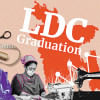Bangladesh seeks $3b from ADB, WB

Bangladesh could get $3 billion in budgetary support under an Asian Development Bank (ADB) and World Bank (WB) arrangement for energy and power sector reforms and the upcoming status graduation from a least developed country (LDC) to a developing nation in 2026.
Last Thursday, the finance ministry sent a letter to the ADB seeking $1 billion in budgetary support for the energy and power sector.
Besides, an ADB mission has been holding talks with the government since September 3 over lending another $1 billion as LDC graduation-related support.
Of the amount, the ADB will provide $400 million. The remaining $600 million is expected to come from the Asian Infrastructure Investment Bank (AIIB) and Japan International Cooperation Agency (JICA) under an ADB arrangement.
In line with its bid to get budgetary support, the finance ministry on Sunday sought another $1 billion from the WB to bring about reforms in the energy and power sector.
Meanwhile, an International Monetary Fund (IMF) staff mission will arrive in Dhaka on September 24 to hold talks over lending another $3 billion in addition to the $4.7 billion it lent to the country in January last year.
All in all, the interim government, which took charge last month following the toppling of the Sheikh Hasina-led Awami League government on August 5, is seeking an additional $6 billion.
The interim government wants to bolster foreign exchange reserves, which have been falling for over two years, bring back stability to the exchange rate and restore confidence in the economy, which has been facing one of the most challenging situations in decades.
In the letter sent to ADB, budgetary support was sought for bringing about reforms in sustainable power and energy, according to a finance ministry official.
Focus points mentioned in the letter include improving sectoral governance, developing conducive policies and regulatory frameworks, improving financial viability and sectoral sustainability, attracting private investment, and preparing and formulating renewable energy procurement plans, the official said.
It also includes preparations for technical studies and pilot projects on smart grid energy storage and demands, the official added.
The letter added that the government's expenditure on importing energy and power increased significantly. Besides, due to a decline in domestic natural gas production, more primary fuel needs to be imported, it said.
In this context, the interim government has formed a committee to review the existing power generation practices and procurement process.
The finance ministry official said they requested $1 billion for the energy and power sector from the ADB in two tranches of $500 million each.
Government officials said the ADB suggested bringing about reforms in the revenue sector, budgeting, fiscal policy, procurement, logistics, and various other sectors to get the country status graduation-related budgetary support.
Officials said Bangladesh would lose different benefits, including concessional loans and tariff benefits, once it graduates from LDC status.
However, graduation will create other opportunities. To utilise those opportunities, Bangladesh must remove obstacles to smooth business activities and take steps to attract more foreign direct investment (FDI), they said.
Bangladesh must implement various reform programmes under the ADB-arranged loan so that the country does not have to face challenges following graduation from LDC status, they added.
Officials said a WB mission was expected to visit Dhaka in the second half of this month to discuss the power and energy sector reform programme.
"We are hopeful of getting support from the World Bank and ADB within December this year," a finance ministry official said.
Meanwhile, preliminary discussions for an additional $3 billion loan will begin with the IMF when its mission arrives in Dhaka in around two weeks.
Bangladesh Bank Governor Ahsan H Mansur had earlier requested the loan during a virtual meeting.
Finance Adviser Salehuddin Ahmed also held separate meetings with the IMF and stressed the need for additional loan support.
IMF officials informed the finance ministry and central bank that they were assessing how much it could lend to Bangladesh.
The IMF has so far released $2.3 billion under the ongoing $4.7 billion loan programme.
A finance ministry official said the upcoming IMF staff mission would mainly try to conduct a preliminary assessment of the reform measures that the interim government would undertake.
However, a meeting detailing the loan arrangement could be held on the sidelines of the World Bank-IMF annual meetings in Washington in October. The finance adviser and the central bank governor are likely to take part in the meeting.
Gayle Martin, WB's Acting Country Director for Bangladesh, said during a meeting with the Power and Energy Adviser that discussions have been held with the Bangladesh Bank governor and the finance adviser regarding the budget support. Martin also expressed optimism about providing the support for the energy and power sector by next December.
After taking charge as Bangladesh Bank Governor, Mansur created a list of priorities, one of which is to improve the condition of the foreign currency reserves.
For this, alongside increasing exports and remittance earnings, the government has been looking for budgetary support from various lenders, including the IMF.
A senior Bangladesh Bank official said the government has debts of over $2 billion in the energy sector. Besides, the country requires about $1 billion each month to meet various demands, including that for power and LNG.

 For all latest news, follow The Daily Star's Google News channel.
For all latest news, follow The Daily Star's Google News channel. 








Comments